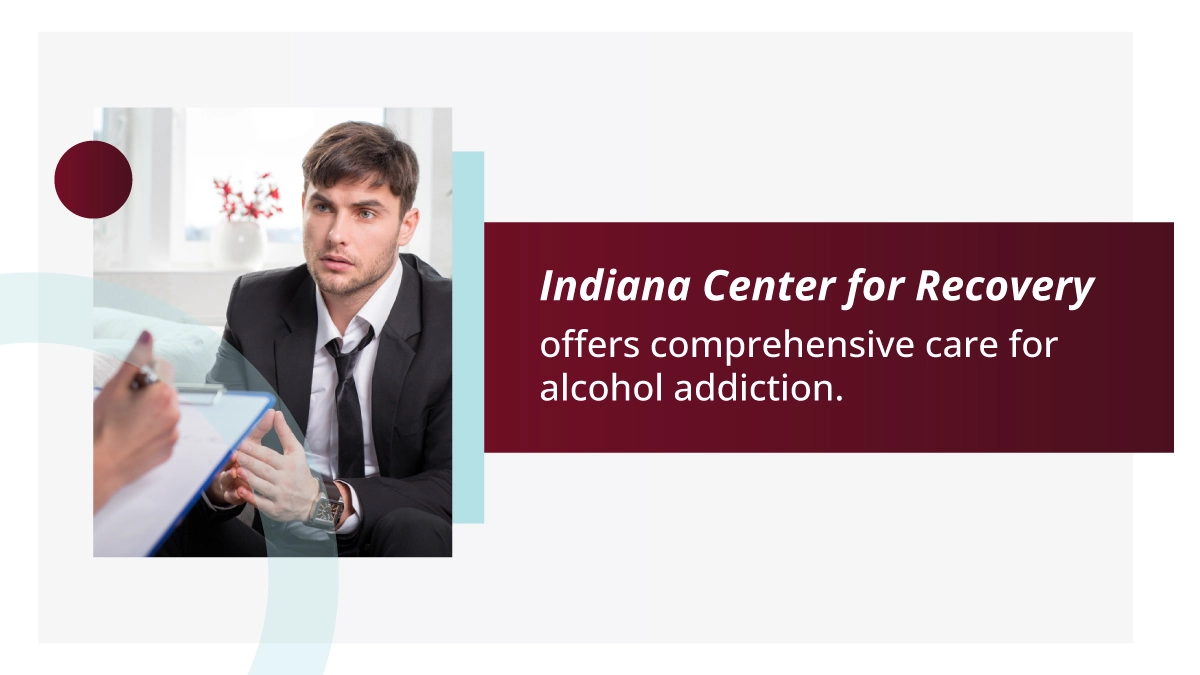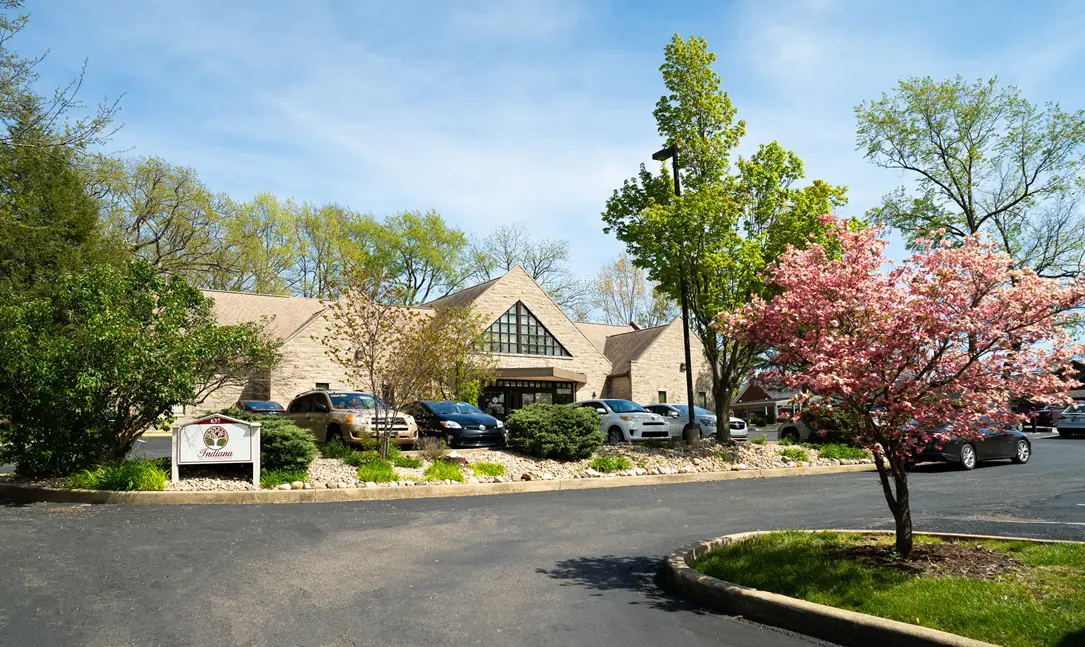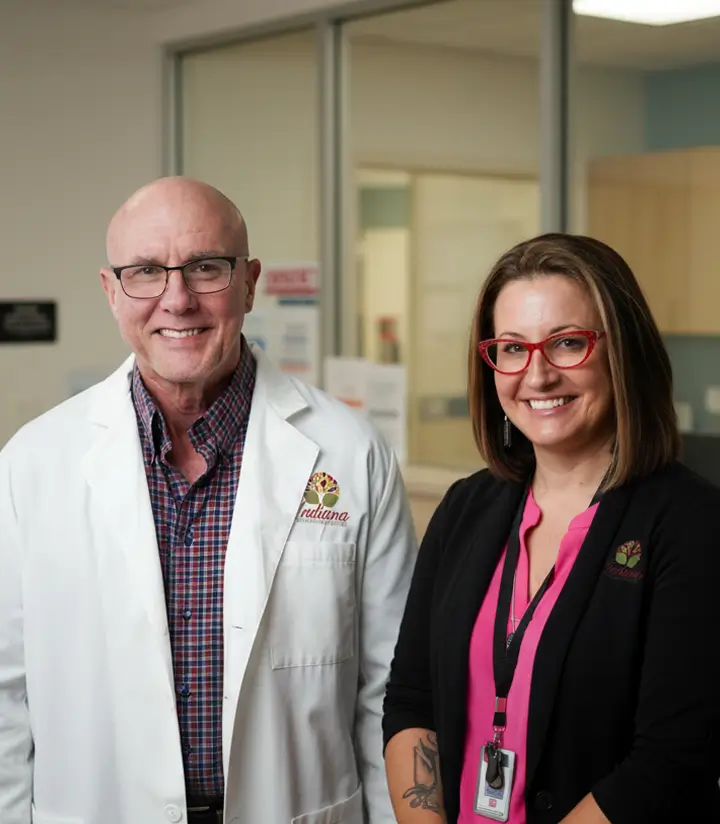
Alcoholism Treatment In Indiana
Millions of people in Indiana struggle with alcoholism, medically referred to as Alcohol Use Disorder (AUD). When alcohol is abused, it can strain relationships and affect responsibilities at work, school, or home. Fortunately, treatment is available at Indiana Center for Recovery.
Key Takeaways
Almost every citizen of Indiana is touched by addiction in one way or another. Here’s what you need to know:
- Alcoholism is a disease where individuals are incapable of controlling alcohol use.
- When an individual develops a physical dependency on alcohol, it is important to seek medical detox due to fatal withdrawal symptoms.
- Medical detox, residential treatment, outpatient treatment, and therapies are methods to treat alcoholism.
Indiana Center for Recovery offers comprehensive care for alcohol addiction.
Alcoholism Explained
People with alcoholism are unable to control or quit drinking. It is a disease that often leads to physical or mental illness. Some often develop a physical dependence and need a drink to be able to function. Over time, alcohol begins to cause problems in a person’s life, but despite the adverse effects, they are unable to quit on their own authority.
Because of their alcoholism, they may feel ashamed of their drinking problem and attempt to hide their drinking. If their drinking has escalated, they may require detox and treatment to be physically removed from alcohol, followed by attendance at Alcoholics Anonymous (AA), or other support group meetings to maintain sobriety.
Signs and Symptoms of Alcoholism
People with alcoholism often have:
- The inability to control or quit drinking
- Social lives revolve around drinking
- Hiding alcohol around their homes
- Difficulty maintaining employment
- Strained relationships affected by the effects of their drinking
- Withdrawal symptoms when they don’t consume alcohol
- Volatile and extreme mood swings
People struggling with alcoholism continue to drink no matter the problem or consequences that arise from it. They may try to quit drinking when their health, jobs, or relationships are threatened, but they fail to follow through with remaining abstinent time and time again.
Several feel hopeless and trapped, not knowing a way out of the cycle. With the help of treatment followed by AA meetings, they have a solution to their drinking problem.
Health Risks of Alcoholism
According to experts, alcohol consumption in moderate use is safe. It is recommended that adults should have no more than 1-2 drinks per day or 7-14 drinks per week. Researchers define one drink as:
- 12 ounces of beer
- 5 ounces of wine
- 1.5 ounces of distilled spirits
The majority of people drink more than the recommended intake on some occasions. However, if alcohol is continually abused, it can have damaging effects on a person’s health. They are more likely to develop several health conditions that often include:
- Heart disease and failure
- Liver disease and failure
- Dementia
- Seizures
For those who have developed a physical dependency on alcohol and are trying to quit drinking, it is important to seek medical detox, as withdrawal symptoms can be fatal.
Treatment Programs for Alcoholism
Indiana Center for Recovery offers treatment for alcohol addiction to those needing help getting sober. Our addiction treatment facility offers several treatment services for those who are also struggling with drugs and alcohol.

Detox
Medical detox is the first stage of treatment. Alcohol withdrawal symptoms are not only uncomfortable, but they can also be fatal. In detox, patients are medically monitored by a medical professional and are administered medication for safety and comfort until the alcohol is fully out of the body.
Residential
After medical detox, several patients attend residential treatment. This service offers a high level of treatment where patients live at our treatment facility and have access to 24/7 medical care. They are given structured daily routines that consist of therapy and activities.
Outpatient Program (IOP)
During outpatient programs, patients typically live at a sober living home. At this level of care, they have a more flexible schedule, allowing them the time to work or study while attending their regular therapy session at our treatment facility. During this stage, it is often recommended to attend support group meetings to build a sober support group for long-term sobriety.
Therapy
There are several different therapies used throughout residential and outpatient treatment to treat mental health while treating alcoholism. Through therapy sessions, patients can address their personal struggles and traumas to develop a healthier way to navigate through obstacles and challenges. Some therapies used include the following:
- Cognitive Behavioral Therapy (CBT)
- Eye Movement Desensitization and Reprocessing (EMDR)
- Motivational Enhancement Therapy (MET)
- Group therapy
- Family therapy
Dual Diagnosis
It is common for patients to have other mental health illnesses along with alcoholism. Frequent mental illnesses in people with alcoholism include:
- Depression
- Anxiety
- Obsess-Compulsive Disorder (OCD)
- Eating Disorder
- Post-Traumatic Stress Disorder (PTSD)
- Borderline Personality Disorder (BPD)
- Bipolar Disorder
At Indiana Center for Recovery, we offer dual diagnosis treatment for those struggling with substance abuse and mental health, consisting of substance abuse treatment as well as therapies combined with medication treatment as needed.
Frequently Asked Questions (FAQ)
How can I tell if I have a problem with alcohol?
If you are unable to control or quit drinking, no matter how many problems your drinking is causing you, then you probably are struggling with alcoholism. If your drinking is affecting your health, job, and relationships, and you are neglecting personal responsibilities, it is best to seek treatment for help.
What is the first stage of treatment for alcohol abuse?
For several people who have an alcohol dependence and cannot quit cold turkey because of fatal withdrawal symptoms, medical detox is the first stage of treatment. During detox, people are medically monitored to ensure safety and comfort for getting alcohol out of their system.
Alcoholism Treatment at Indiana Center For Recovery
If you’re struggling with alcoholism, professional treatment can help you break free from alcohol dependency and regain control of your life. At Indiana Center for Recovery, we provide comprehensive addiction treatment programs that begin with alcohol detox to safely manage alcohol withdrawal symptoms, which can be fatal without medical supervision. Following detox, intensive inpatient alcohol rehab provides round-the-clock support for recovery, while flexible outpatient alcohol rehab options allow you to maintain daily responsibilities while receiving ongoing care. Since alcoholism often co-occurs with mental health conditions, our integrated dual diagnosis treatment addresses both alcohol addiction and mental health simultaneously.
We offer alcohol rehab centers across Indiana where you can access specialized alcoholism treatment programs with evidence-based care designed to help you overcome alcohol addiction and achieve lasting sobriety. Call us right now at (844) 650-0064 to learn how we can help you overcome alcoholism and start your journey toward recovery.



 100% Confidential
100% Confidential
